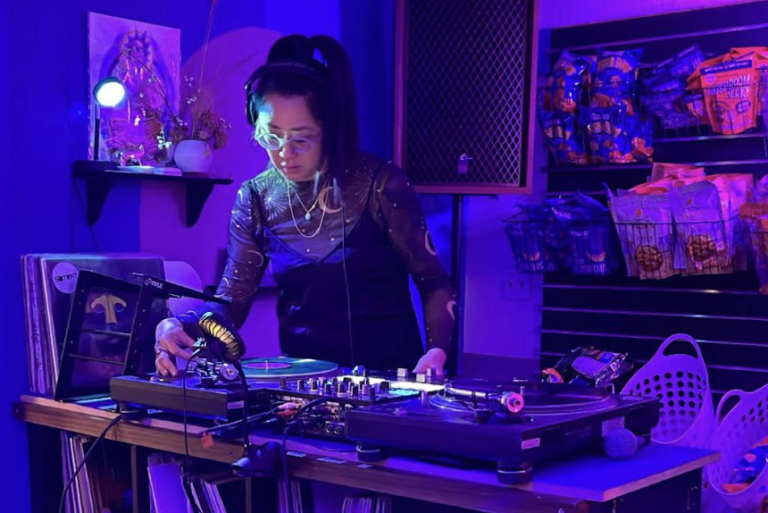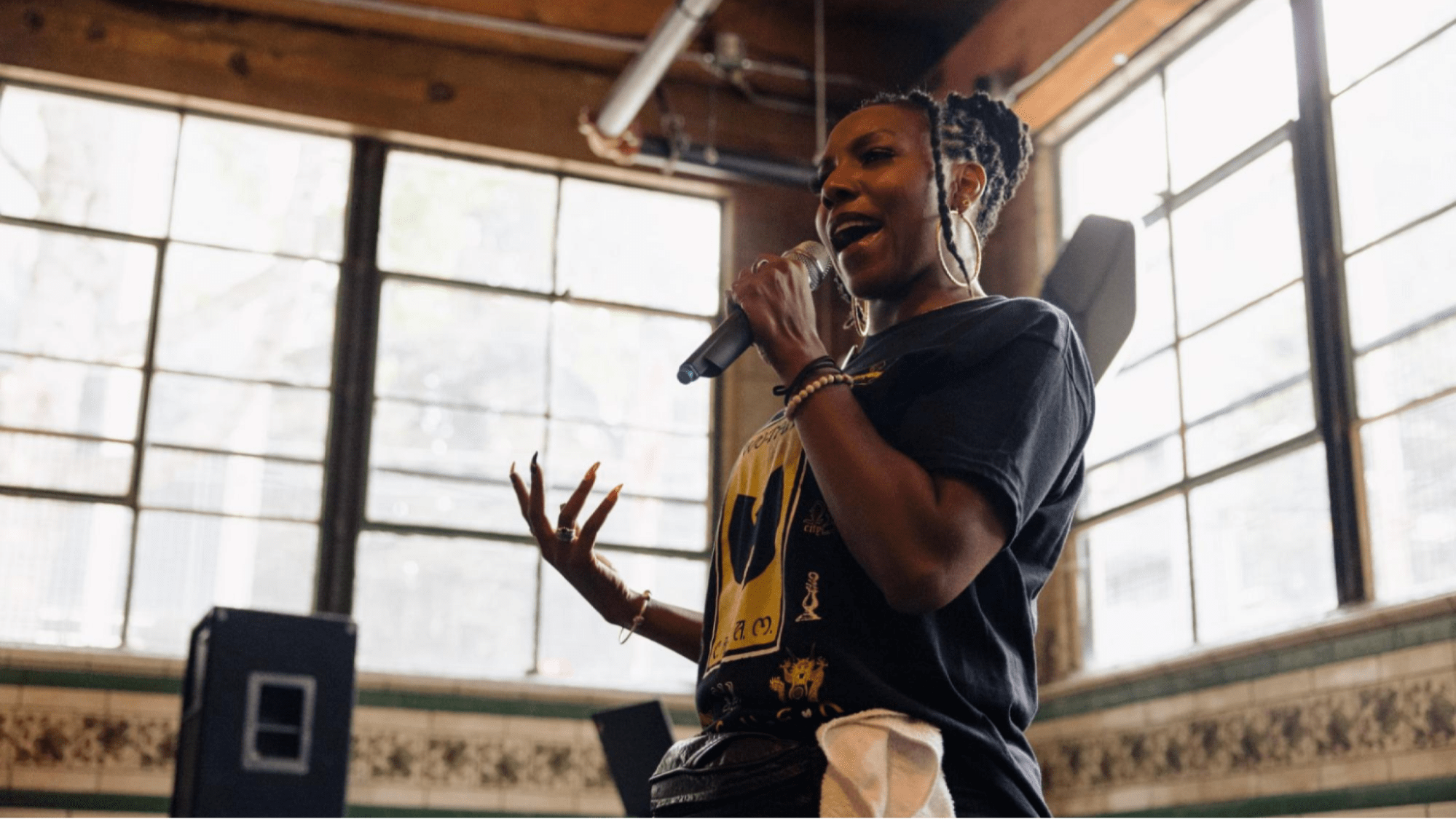Sometimes a snack shop is more than just a snack shop. It’s a portal to new lands through your tastebuds, a method of traveling without leaving home. It’s a repository for conversation-starters: find a favorite candy from childhood and instantly be transported in time. And if you’re in Baba’s House in Oakland, it’s also a place where you can catch a comedy show.
Founded in 2021 by events professional Jenn Lui and her partner, musician and teacher Alan Chen, what began as a simple idea for a second-floor convenience store has evolved into a multi-purpose third-space playground for the AAPI and BIPOC residents in the Bay Area.
API Heritage Month 2024: Celebrate Asian & Pacific Islander cultures at these events
Whimsical in blues and purples, the mission is to strengthen and support the community through arts and events. Snacks are still front and center: they’re even shouting it in neon. A glowing sign on the wall reads Legacy, Community, Munchies.
“If you ever traveled to Asia, there’s always really, really interesting international snacks and it’s always like, why don’t we have that in the US?” says Jenn. “We wanted to have very unique snacks, but also nostalgic ones that spark stories to share.”
Therefore you’ll find things like White Rabbit Candy, a milky toffee made in Shanghai and a childhood staple in Asian homes, alongside new crowd pleasers like Mama Teav’s Hot Garlic, created by the children of a Cambodian refugee, and Munchrooms Mushroom jerky, an Asian and women-owned Southern brand. “It’s really cool to be able to support these small businesses that have really similar values about building community,” says Jenn.

A space for all
Baba’s House is named after Jenn’s late father, who indulged in food and encouraged his children to forge their own paths, which is nontraditional in an Asian household.
“When my dad passed away it really just kind of sparked something in me to create something and build a legacy with my family and loved ones,” says Jenn.
The location was important. 15th Street is a very special block, where they already had a community of friends at Grams, a clothing store, Hatch, a gastropub, and Pothead, a plant store. “When I saw the space, I fell in love with the upstairs and what we could create,” says Jenn. Today they join forces with other businesses and regularly hold block parties to showcase the businesses on the 15th; the next one is on May 11th.
Baba’s House has three rooms, with one large modular area allowing it to quickly change for various sizes of events. The venue is offered to musicians for little to no fee with the opportunity to stream their gigs, which also provides them with free content.
Other areas include a personal library, podcasting booth, a consignment shop for clothing, an art gallery, and a community altar where people can bring their memorabilia and pay respects to loved ones if they don’t have a safe space to do so. “We activate all of the areas of our shop for people to come through for various reasons,” says Alan.
High-end sound equipment was obtained through a donation; very little money has been spent on marketing, if any at all; everything has been through word of mouth, save for hiring a social media manager. By bringing like-minded creatives together, Baba’s House became a kind of incubator by default. Events, now four days a week, were first created as a necessity to bring people in; it’s hard to be visible on a second-floor space.

One recurring event, Folks With Jokes, exemplifies how Jenn and Chen respond to community needs. What began as a regular open mic evolved in time into a joke workshop.
“Comedians come to our space and tell their new joke, and our host Tash and the audience would give feedback so that they could tweak it,” says Jenn. It’s a wholly original event idea that wouldn’t have happened without input on what would help the comedians most. Jenn adds: “It’s been really well received since we switched into kind of like a workshop format, because no one else does that.”
But the most successful event is Mahjong night.
Bridging the past and the future
The Mahjong den is Baba’s House’s only permanent room. It’s completely red with gold accents. “People like to tell us it’s like a Wong Kar-wai vibe,” says Alan. “It’s set up to be like an opium den without the opium.”
But here, the drug is a tile-based game. Mahjong nights at Baba’s House were created out of a desire for people to learn the game rooted in Asian culture, but without having the proper tools to do so.

“Every time we played it was always a great time, just having great conversations and people getting excited to learn,” says Jenn. “So we just said, why not have a Mahjong night? Why not try to teach the community how to play if anyone’s interested?”
It turns out, a lot of people are interested. Baba’s House went from having just one Mahjong night a month to four nights a month, bridging gaps and carrying on the culture through a new generation. Though they do know their limits.
A disclaimer on their Eventbrite invite reads: “We are not professional mahjong players or teachers. We grew up watching our parents play Cantonese style and we’ll do our best to share what we’ve learned from them. Our parents would consider us as slow players still. 😅😅😅”
For this year’s API Heritage Month, Jenn Lui of Baba’s House has curated a Spotify playlist. Take a listen below…






